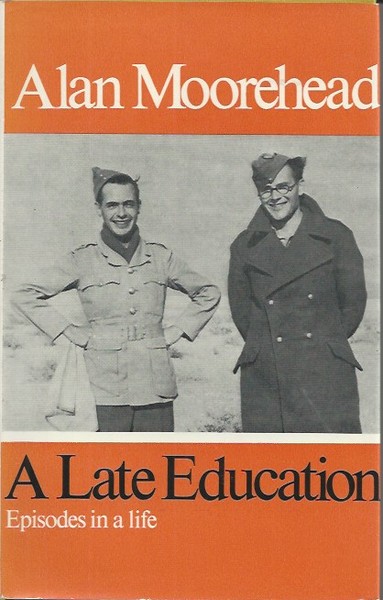At 26, Alan Moorehead escaped from the Melbourne suburbs to Europe and the shimmering pre-war days of London and Paris. He was in England when Edward VIII abdicated, in Paris during the last gay days of the thirties, and was sent to Spain on a tanker smuggling petrol.
Alan Moorehead, a distinguished World War II correspondent for The Daily Express of London, whose dispatches appeared from the Western Desert of Africa to the beaches of Normandy, and who later became a popular author of acclaimed works of history, biography and reportage.
Excerpts from his books, ”The White Nile” (1960) and ”The Blue Nile” (1962), and from other works were printed in The New Yorker. His Nile books tell the history of the exploration of the river – ”The Blue Nile” recounting the explorations of the first half of the 19th century, ”The White Nile” describing those of the second half of the century. Journey Across Australia
In 1963, he achieved critical praise for ”Cooper’s Creek,” which reconstructed a tragic journey across uncharted Australia by two explorers in the 1860’s. Another journey of discovery that brought Mr. Moorehead critical acclaim was ”Darwin and the Beagle,” the story of Charles Darwin’s round-the-world voyage during which he developed his theory of evolution. In ”The Fatal Impact” (1966), Mr. Morehead described the destructive effect of Western civilization on the island cultures of the South Pacific.
The author’s early books – ”Mediterranean Front” (1941) and ”The End in Africa” (1943) – sprang from his experiences as a correspondent during World War II. Writing of the latter book, V. S. Pritchett called Mr. Moorehead ”the most brilliant” and ”the most imaginative” of the war correspondents.
Mr. Moorehead also wrote compellingly about World War I in ”Gallipoli” (1956), his memorable account of the ill-fated British expedition to take the Dardanelles from Turkey. He wrote biographies of Sir Winston Churchill and Field Marshal Viscount Montgomery of Alamein. And his interests ranged from essays on Italy, ”The Villa Diana” (1951), to the preservation of wildlife in Africa, ”No Room in the Ark” (1959). ”Episodes in a Life”
In a memoir published in 1971, ”A Late Education,” Mr. Moorehead recalled ”episodes in a life” that, he wrote, began with him as an untutored Australian colonial then developed because of his wartime experiences and associations. The impact of the war in western Africa remained with him for the rest of his life, he wrote.
In the memoir, he described the terror of war as he saw it in Sicily in 1943: ”The war was no longer a soldier’s tournament in empty space. We were among civilians again, shells and bombs fell on statues and suburban shops, on churches and schools, instead of on the useless sand of the Western Desert. Now for the first time we were observers of the consequences of war.”
Commenting on Mr. Moorehead’s career, The Times of London said: ”He was one of the few contemporary writers who successfully made the transition from journalism to history. In both crafts, he was pre-eminent.” pp. 175 First Edition price-clipped jacket #0320
